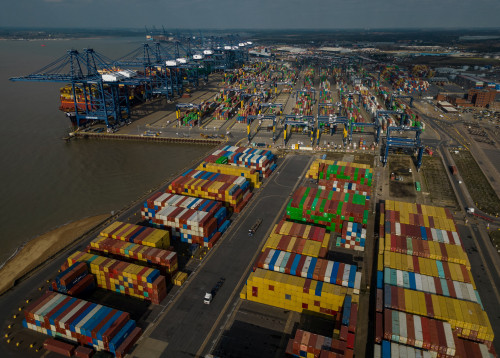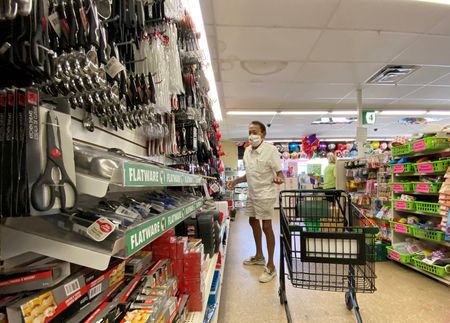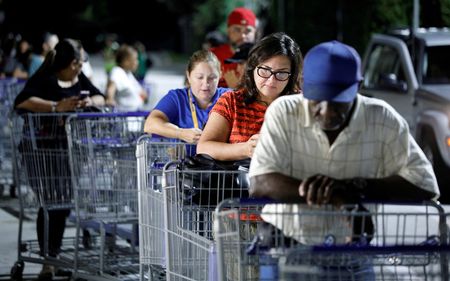 1
1 1
1


WASHINGTON (Reuters) – U.S. retail sales increased more than expected in June as consumers bought motor vehicles and a range of other goods even as they paid more for gasoline.
Retail sales rose 1.0% last month, the Commerce Department said on Friday. Data for May was revised up to show sales falling 0.1% instead of 0.3% as previously reported.
Economists polled by Reuters had forecast retail sales would increase 0.8%, with estimates ranging from as low as a 0.2% drop to as high as a 2.2% increase. Retail sales are mostly made up of goods, and are not adjusted for inflation.
Annual consumer prices shot up 9.1% in June, the largest increase since November 1981, putting the Federal Reserve on track to deliver another 75-basis-point interest rate increase at the end of this month. The U.S. central bank has hiked its policy rate by 150 basis points since March.
Gasoline prices surged in June, averaging above $5 per gallon, according to data from motorist advocacy group AAA. That boosted sales at service stations. Prices at the pump have since declined from last month’s record peaks and were averaging $4.577 per gallon on Friday.
Retail sales also got a lift from a rebound in motor vehicle purchases after being weighed down by shortages.
Excluding automobiles, gasoline, building materials and food services, retail sales rose 0.8% in June. Data for May was revised lower to show these so-called core retail sales falling 0.3% instead of being unchanged as previously reported.
Core retail sales correspond most closely with the consumer spending component of gross domestic product. Despite June’s rise, inflation-adjusted core retail sales were probably softer. That implies moderate consumer spending.
Second-quarter GDP estimates range from as low as a 1.7% annualized rate of decline to as high as a 1.0% pace of growth. The economy contracted at a 1.6% rate in the first quarter because of a record trade deficit.
With the labor market generating jobs at a brisk clip and 11.3 million unfilled positions at the end of May, a second straight quarterly decline in GDP would not necessarily mean the economy was in recession. Excess inventories would probably account for much of any decline in GDP last quarter.
(Reporting by Lucia Mutikani; Editing by Paul Simao and Nick Zieminski)